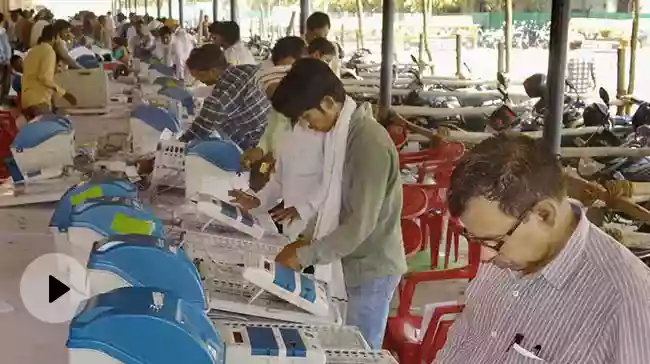.gif)
.gif)

As the Supreme Court prepares to render its verdict on a series of petitions urging the tallying of Voter-Verifiable Paper Audit Trail (VVPAT) slips with votes cast through Electronic Voting Machines (EVMs), it has raised four crucial queries to the Election Commission of India (ECI) regarding the functioning of VVPATs.
The bench, comprising Justices Sanjiv Khanna and Dipankar Datta, summoned a senior Election Commission official to address these questions at 2 pm today. The court's inquiries revolve around technical aspects such as the installation of microcontrollers, the programmability of these units, the availability of symbol loading units, and the discrepancy between the limitation period for filing election petitions and the maintenance of records. In a previous hearing, the bench extensively interacted with a poll panel official to gain insights into the functioning of EVMs. Senior advocate Maninder Singh, representing the Election Commission, stressed that while EVMs are standalone machines resistant to tampering, the possibility of human error remains a concern.
Addressing the petitioners, the Supreme Court cautioned against excessive suspicion, emphasizing the need to appreciate the efforts of the Election Commission. Amid concerns raised by the Opposition and activists, the petitions advocate for cross-verification of every vote through VVPATs, with one petitioner, activist Arun Kumar Agarwal, urging the counting of all VVPAT slips. The VVPAT system, aimed at ensuring transparency in the electoral process, generates paper slips that enable voters to verify if their votes have been accurately recorded. As the nation awaits the apex court's ruling, the debate surrounding the integrity of the electoral process continues to intensify.